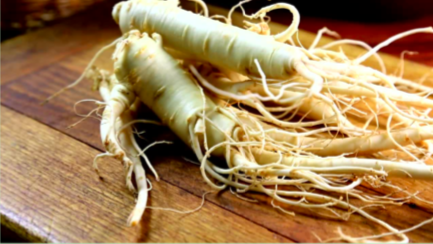When you hear about ginseng you might wonder one of two things…
- What is Ginseng? Or
- Why are there so many different kinds and what’s the difference between them?
Both responses here are very common so stay tuned as we unwrap everything you would want to know about ginseng!
The what?
First things first, let’s discover what ginseng is, how it works and how long it’s been around for!
Ginseng comes from the root of the araliaceae herb family and has been used for centuries in traditional Chinese medicine as a natural remedy focusing on prevention of health issues. Ginseng has shown to be effective at improving cognitive function, memory, mood, reducing stress, its antioxidant properties and improving energy to name just a few of its benefits (Britannica).
Ginseng contains ginsenosides which are the active ingredients responsible for the mechanism of actions behind the therapeutic benefits that it possesses. Ginsenosides work as an adaptogen to maintain the body’s resistance to adverse factors and homeostasis (Wee et al., 2011). Basically, ginseng helps the body to adapt itself to changes and maintain steady internal, physical, and chemical conditions in the body.
The ginsenoside concentration in ginseng develops higher as the root ages. It is shown that from 1-5 years the ginsenoside amount increases, so picking an aged ginseng of at least 5 years is the easiest way to ensure you are picking a high quality ginseng product (Yang et al., 2017).
The different kinds..
With over 13 different species, Ginseng can be categorized based on origin, the culture surrounding it and how it looks, here is a quick rundown of the most common types:
| Type | Main uses | Appearance |
| Korean Ginseng | most used for unclear thinking, diabetes, and male erectile dysfunction | Lateral root is well-developed form of hu-man-shaped |
| American Ginseng | Most commonly used as a stimulant and to treat headaches, fever, indigestion, and infertility | Short tap root and lateral root; weak growth of fine root |
| Japanese Ginseng | most commonly used for gastroenteric disorders, as well as an antidiabetic, antiulcer, and expectorant supplement | Bamboo shaped, uneven |
| Chinese Ginseng | Best known for its antioxidant properties | The rugged and black roots |
(Flordis)
How long?
Studies have shown that the positive effects from Ginseng supplementation can occur in as little as 12-24 hours, with other studies showing that a longer period of consistent consumption has greater benefits. For example, one study showed improvement in daily calmness and math skills after 8 days of taking 400mg of panax ginseng daily. Another study showed improvement in mental health, social functioning and mood after 4 weeks of 200mg panax ginseng consumed daily.
Can you take too much?
Like anything, ginseng supplementation is best taken in moderation with the recommended daily intake (RDI) being anywhere from 200-400mg of the root or powder. Taking too much (over the RDI) or for an extended period of time (over 6 months without a break) can lead to adverse effects of nervousness, insomnia, headaches, dizziness, menstrual changes or stomach upset (Liu, 2022).
The Verdict?
Taking 200-400mg of Ginseng daily for a few months at a time can provide a great natural boost to your health and wellbeing. Cycling ginseng supplementation with an approach of a few months on, then a month’s break before continuing with use is a great way to experience the therapeutic benefits that ginseng has to offer while reducing the risk of adverse effects. Remember to pick a ginseng product with a high ginsenoside concentration to ensure you are giving your body the best quality supplement!
References
Britannica. Ginseng. Accessed on 06/09/2022, <https://www.britannica.com/plant/ginseng>
Flordis. A history of ginseng, SFI Health, accessed on 08/09/22, <https://www.flordis.com.au/health-insights/energy-immunity/history-ginseng/>
Liu, L. (2022). Side effects of ginseng supplements, National Capital Poison Center. Accessed on 08/09/22, <https://www.poison.org/articles/side-effects-of-ginseng-supplements-191>
Wee, J. Park, K. Chung, A. (2011). Chapter 8 Biological Activities of Ginseng and Its Application to Human Health, Herbal Medicine: Biomolecular and Clinical Aspects. 2nd edition. Accessed on 07/09/22, <https://www.ncbi.nlm.nih.gov/books/NBK92776/>
Yang, Y., Ren, C., Zhang, Y., & Wu, X. (2017). Ginseng: An Nonnegligible Natural Remedy for Healthy Aging. Aging and disease, 8(6), 708–720. https://doi.org/10.14336/AD.2017.0707




